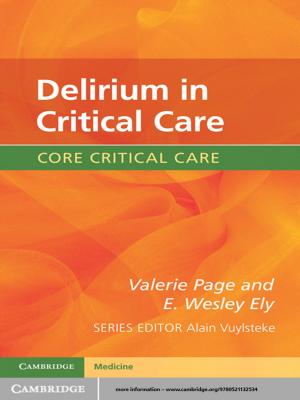| Author: | ISBN: | 9780511739262 | |
| Publisher: | Cambridge University Press | Publication: | January 18, 2010 |
| Imprint: | Cambridge University Press | Language: | English |
| Author: | |
| ISBN: | 9780511739262 |
| Publisher: | Cambridge University Press |
| Publication: | January 18, 2010 |
| Imprint: | Cambridge University Press |
| Language: | English |
Filler techniques are the most widely used surgical procedures in cosmetic surgery, as they are the best method of reducing wrinkles on a long-term basis. For years, dermatologists have known that water-binding soft-tissue fillers can replace the loss of collagen, elastin, and hyaluronic acid from the skin. Because filler formulas and application techniques are constantly updated and reevaluated, the dermatologist and cosmetic surgeon need a quick reference on the subject. This new text, edited by world-renowned dermatologist Dr Neil S. Sadick, covers all the main aspects of soft-tissue filler techniques. Subjects covered include choosing and applying fillers; short-, intermediate-, and long-acting fillers; and combination approaches, as well as anesthetic considerations, equipment and patient positioning, operative procedures, potential complications, and postoperative evaluation.
Filler techniques are the most widely used surgical procedures in cosmetic surgery, as they are the best method of reducing wrinkles on a long-term basis. For years, dermatologists have known that water-binding soft-tissue fillers can replace the loss of collagen, elastin, and hyaluronic acid from the skin. Because filler formulas and application techniques are constantly updated and reevaluated, the dermatologist and cosmetic surgeon need a quick reference on the subject. This new text, edited by world-renowned dermatologist Dr Neil S. Sadick, covers all the main aspects of soft-tissue filler techniques. Subjects covered include choosing and applying fillers; short-, intermediate-, and long-acting fillers; and combination approaches, as well as anesthetic considerations, equipment and patient positioning, operative procedures, potential complications, and postoperative evaluation.















